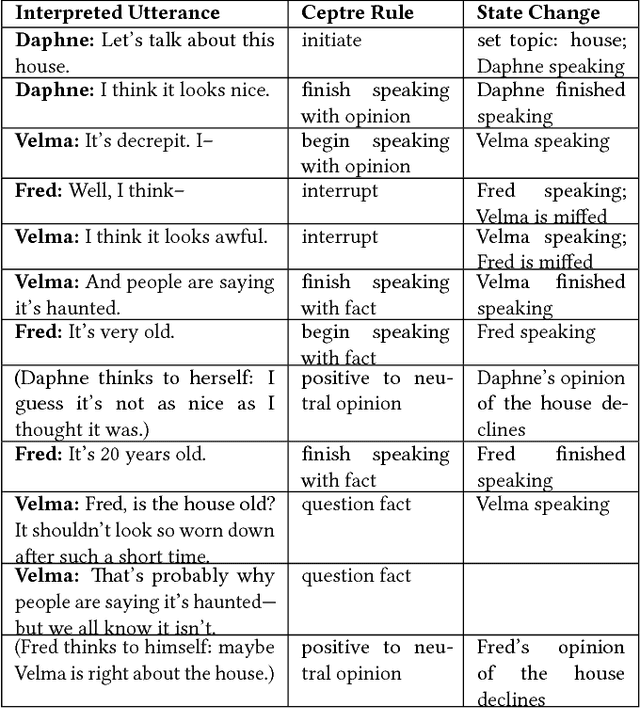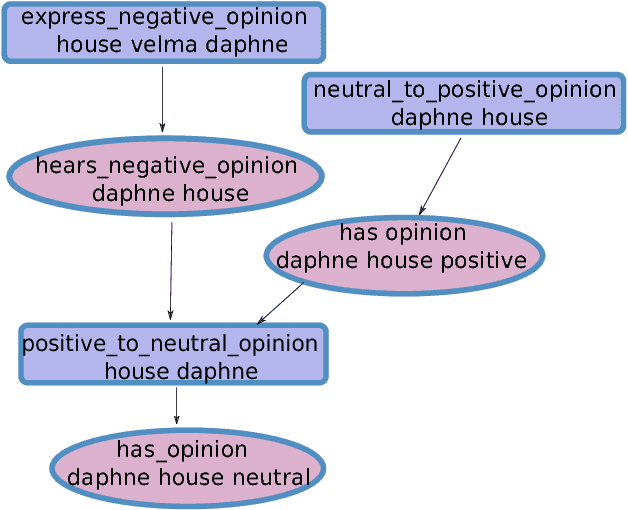A Generative Model of Group Conversation
Paper and Code
Jun 21, 2017



Conversations with non-player characters (NPCs) in games are typically confined to dialogue between a human player and a virtual agent, where the conversation is initiated and controlled by the player. To create richer, more believable environments for players, we need conversational behavior to reflect initiative on the part of the NPCs, including conversations that include multiple NPCs who interact with one another as well as the player. We describe a generative computational model of group conversation between agents, an abstract simulation of discussion in a small group setting. We define conversational interactions in terms of rules for turn taking and interruption, as well as belief change, sentiment change, and emotional response, all of which are dependent on agent personality, context, and relationships. We evaluate our model using a parameterized expressive range analysis, observing correlations between simulation parameters and features of the resulting conversations. This analysis confirms, for example, that character personalities will predict how often they speak, and that heterogeneous groups of characters will generate more belief change.
 Add to Chrome
Add to Chrome Add to Firefox
Add to Firefox Add to Edge
Add to Edge